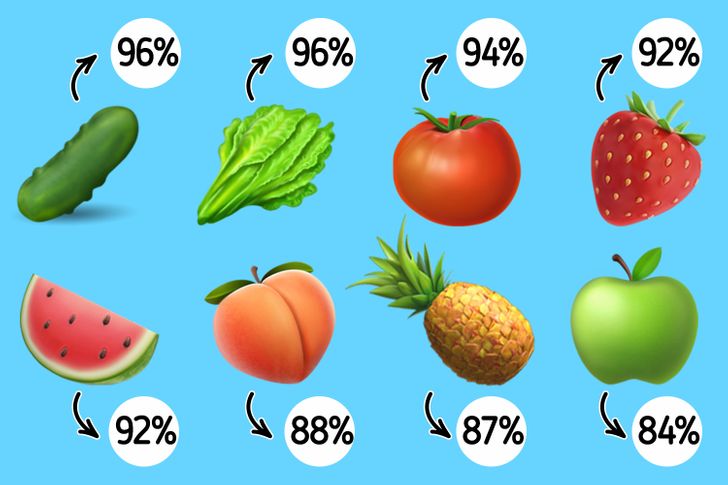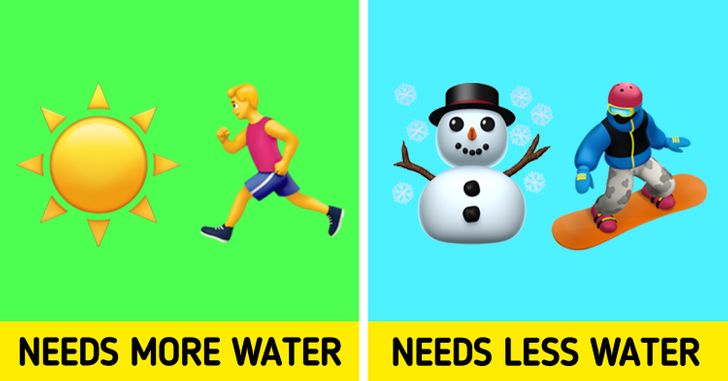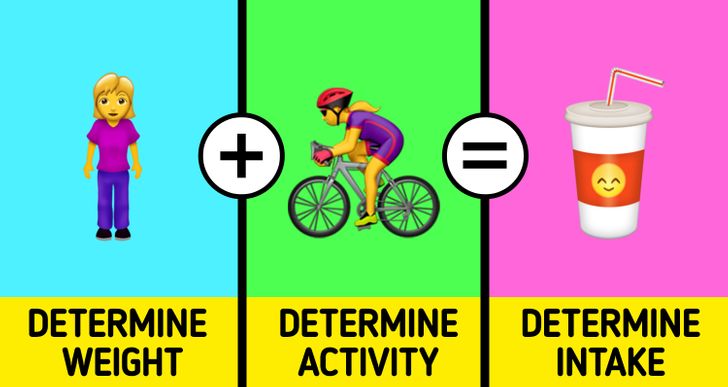How Much Water You Should Drink a Day
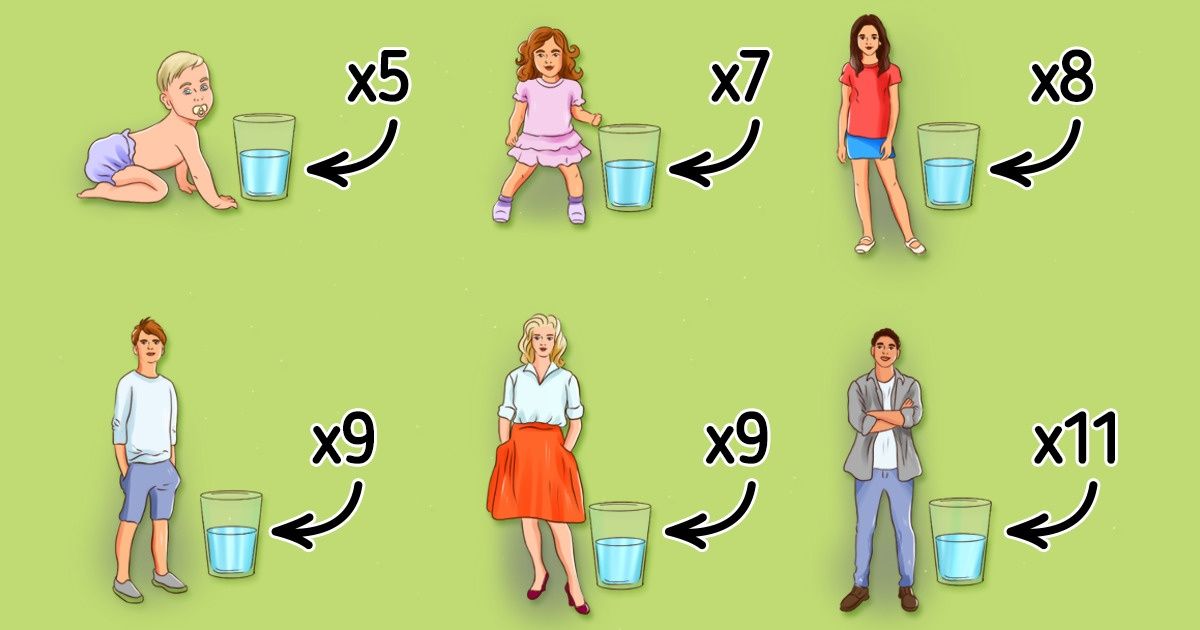
The amount of water you need daily is very individual. Depending on your gender, weight, age, and general lifestyle, you might need to drink way more or somewhat less than other people. 5-Minute Crafts has prepared some guidelines to determine your optimal aqua intake. At the end of the article, you will find the precise formula to use.
How much water does your body need?
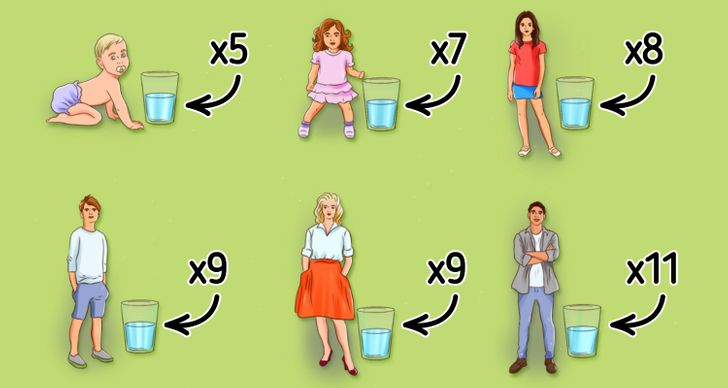
The amount of water is different for everyone. The European Food Safety Authority (EFSA) proposes the following recommendations for healthy water intake:
- Infants (6-12 months old) — 0.8-1.0 liters (27-33 fl oz) or around 3-4 glasses
- Children (1-2 years old) — 1.1-1.2 liters (34-42 fl oz) or around 5 glasses
- Children (2-3 years old) — 1.3 liters (46 fl oz) or around 5.7 glasses
- Children (4-8 years old) — 1.6 liters (56 fl oz) or around 7 glasses
- Boys (9-13 years old) — 2.1 liters (74 fl oz) or around 9 glasses
- Girls (9-13 years old) — 1.9 liters (67 fl oz) or around 8.3 glasses
- Adult men (older than 14) — 2.5 liters (87 fl oz) or around 11 glasses
- Adult women (older than 14) — 2.0 liters (70 fl oz) or around 9 glasses
You need to get around 20-30% of your water through the food and beverages you consume. Here are some of the products that are a perfect source of liquid:
- Cucumber — 96% water
- Lettuce — 96% water
- Red tomatoes — 94% water
- Strawberries — 92% water
- Watermelon — 92% water
- Peaches — 88% water
- Pineapple — 87% water
- Apples — 84% water
The amount of water your body needs can also depend on various conditions:
- Place where you live: If you live in more hot, dry, humid areas, mountains, or at a high altitude, then your body will need more water.
- Your diet: If you consume a lot of coffee or caffeinated beverages daily, your body can lose extra water through frequent urination. If you don’t eat a lot of hydrating foods, but prefer salty, spicy, or sugary dishes, then your body will need extra water.
- Weather: During hot seasons, your body requires more water than during the cooler periods.
- Level of activity: Leading an active lifestyle and exercising frequently requires more hydration than if you mainly sit at a desk.
- Your health: Some health conditions can make you lose extra water, so you will need to drink more to restore it.
- Your weight: The more you weigh, the more water your body needs.
- Pregnancy and breastfeeding: If you are pregnant or nursing a baby, your body also requires more water.
How to calculate the optimal water intake?
These simple steps can help you to estimate the approximate amount for your body:
- Determine your weight.
- Multiply your weight by 0.033 for kg and 2/3 for lbs — this will help you to determine your daily water intake basis.
- If you work out, you need to consume additional 340 ml (12 fl oz) of water for every 30 minutes of exercise.
For example:
- Your weight is 60 kg (132 lbs)
- 60×0.033 = 2 liters or 132 lbs x 2/3 = 88 fl oz
- For 75 minutes of daily exercise: 75 / 30×340 = 850 ml or 75 / 30×12 = 30 fl oz
- Your total water intake would be: 2 liters + 850 ml = 2.85 liters or 88 fl oz + 30 fl oz = 118 fl oz
